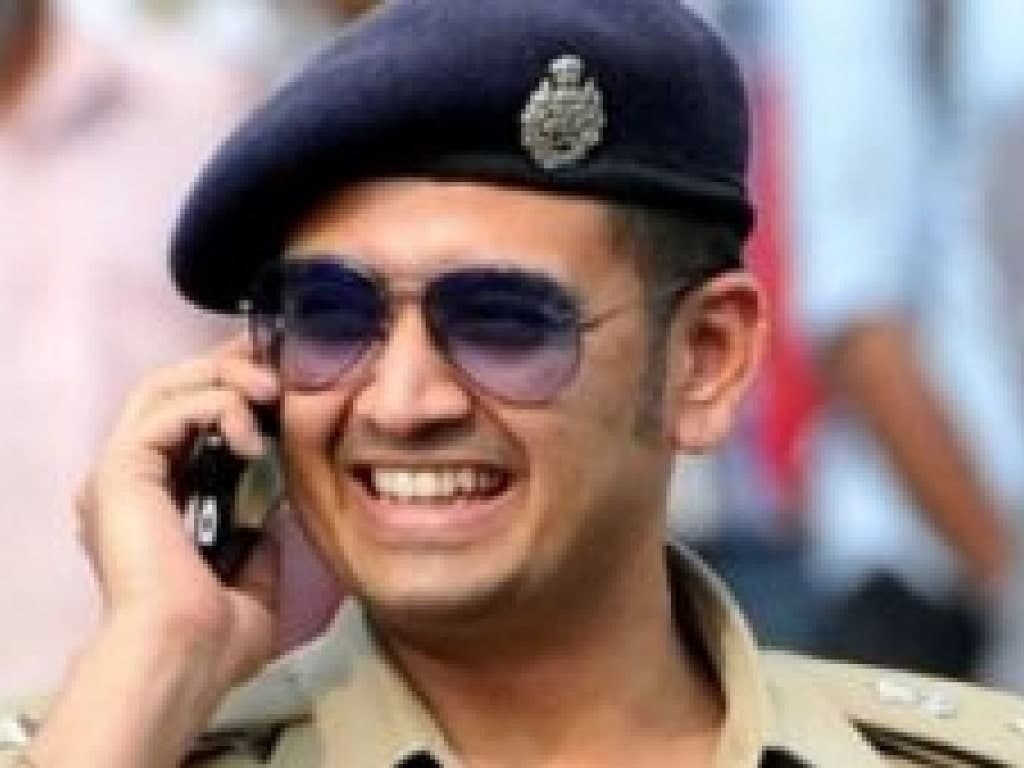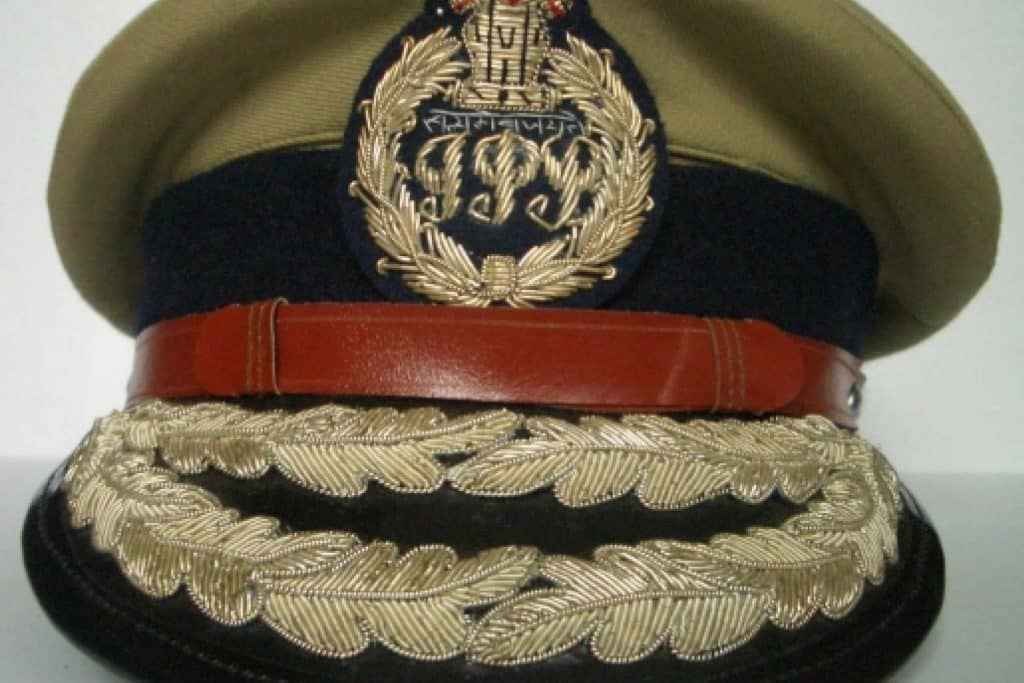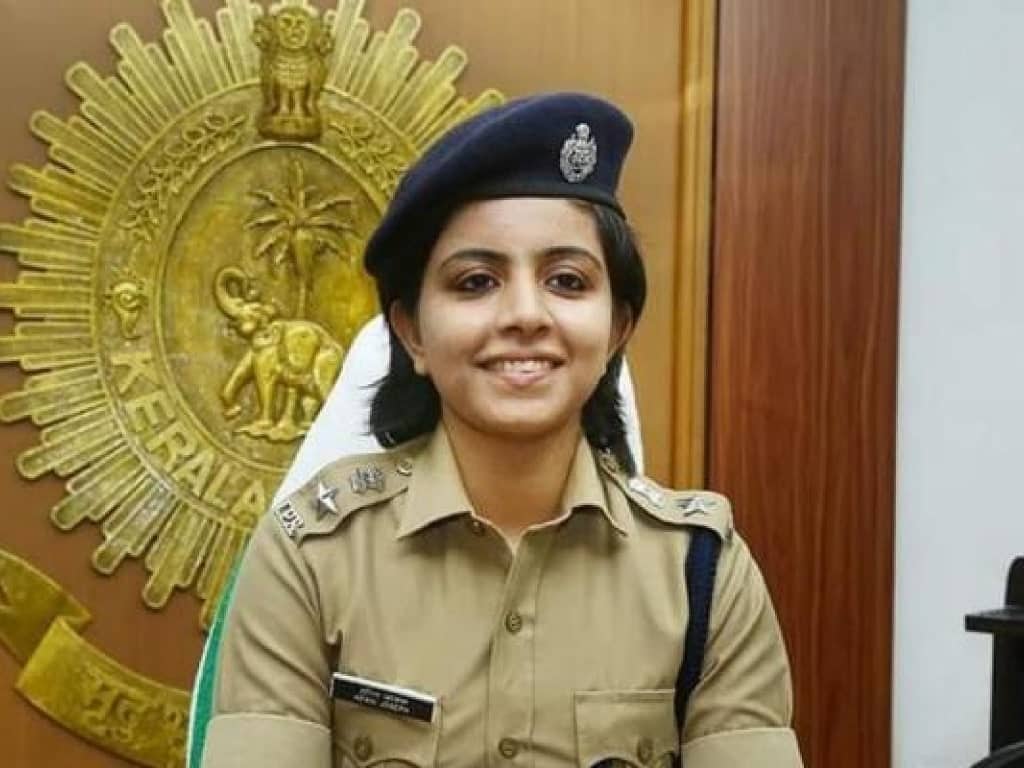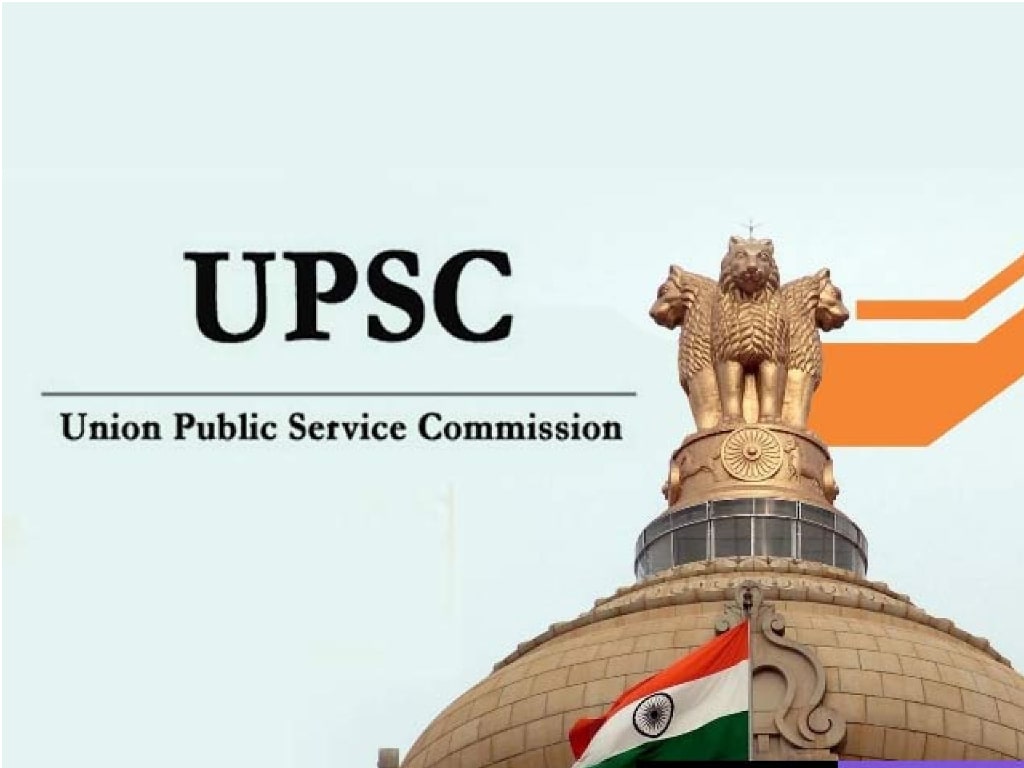How to Become an IPS Officer – Selection Procedure
12 min read
How to become an IPS officer is an ambition for many Indians? Particularly, that respect and that white-collar is not everybody’s cup of tea. Only those will be able to fulfill the dream of an IPS officer who will rigorously add efforts and work hard to reach their desired destination.
You have already decided on your aim of life and are very stuck to become an IPS officer. But confused? You don’t know how to proceed further and what to do to become an IPS officer in India?
Ambitious to become an IPS Officer, then what is coming your way? Don’t exactly know what should be done to become an IPS officer? Then, you are in the right place. Surely, this article solves all your queries related to How to become an IPS officer. So, let us get started.
About IPS Officer
An Indian Police Officer is mainly responsible to serve the public. It is also the responsibility of an IPS Officer to preserve and safeguard the public. The boundaries of an IPS Officer to serve are not limited to a state. He is responsible to safeguard the public interest at the national level. The main role of an IPS officer is to maintain a law and order.
IPS Exam
To become an IPS Officer the candidate needs to apply for Civil Services Exam (CSE) conducted by Union Public Service Commission (UPSC) every year.
Full form Of IPS
The full form of IPS is the Indian Police Service. The main responsibility of the IPS officer is to maintain the law and order in society. Keep reading the article till the end to know more what is IPS, eligibility, age limit, syllabus, and all other necessary details related to it.
Quick Process to become an IPS
Step 1: Complete your graduation
The first step to become an IPS Officer is to coomple 12 th class and then take a degree in any field of graduation of your choice.
Step 2: Appear for CSE – UPSC Exam
Once you have completed graduation you need to apply for the Civil Service Examination condcuted by Union Public Service Exam. You have to qualify for all the 3 stages of the UPSC exam and become an IPS officer.
The 3 stages of UPSC are.
- Preliminary Exam
- Mains Exam
- Interview Process
Step 3: On field Traning
Once you have qualified for the UPSC and become IPS, you are given on filed training and then posted as IPS Officer.
How to Become an IPS Officer
To become an IPS you should pass the Civil Service Exam (CSE) conducted by Union Public Service Commission (UPSC) every year. You must crack the Preliminary Exam, Mains Exam, and Interview Process, and get selected for the training. To become an IAS, IFS & IRS also you need to crack CSE – UPSC exam.

Eligibility Criteria
To become an IPS Officer you need some eligibility and requirements-age limit, educational criteria. To throw more light, with educational requirements and cracking UPSC Exam to become an IPS you also need physical requirements.
Nationality
Nationality should be either one of the following.
A. The candidate should be a citizen of India
- Subject of Nepal
- Subject of Bhutan
B. A Tibetan Refugee who settled in India permanently before January 1st,1962
C. An immigrant from any of the countries like Buma, Sri Lanka, Pakistan, Uganda, Zambia, Vietnam, Ethiopia, Tanzania, East African countries of Kenya, Zaire.
Educational Qualification
- You need to hold a degree from any recognized University
- Even if you are appearing for your final year of graduation you are eligible to apply
- The graduation field is not taken into consideration
- Even those candidates who have completed their education from distance education or through a correspondence education are eligible to apply for the post of IPS Officer.
- Candidates awaiting the results are also eligible for the Prelims Exam of the UPSC-CSE Exam. But for Mains Exam they have to produce proof of passing the exam.
- Candidates with technical degrees are also eligible to apply for this post.
- Also, a candidate with a professional qualification can apply for the exam.
- A Medical student who has completed the degree but is undergoing an internship program is also eligible to apply for the post.
- Candidates who have passed the ICAI, CWA, or ICSI Exam.
Age Limit
A person to become an IPS Officer should at least be 21 years of age. And, the maximum age limit according to the category is as follows.
| Category | Age | Attempts |
| General | 32 | 6 |
| OBC | 35 | 9 |
| SC/ST | 37 | No limit |
- Candidate applying for how to become an IPS officer should be 21 years of age before August 1, during the year of writing the examination
- There is age relaxation for defense service personnel
- Officers who have soft the military at least for five years get the age relaxation up to 5 years
- Age relaxation for the residents of Jammu and Kashmir is 5 years
- There is no relaxation for the physically handicapped especially with blindness, deafness, or mute. The relaxation to such student is up to 10 years
Age Limit For Handicapped
For handicapped and disabled candidates the age limit and the maximum number of attempts for the exam are as follows.
| Category | Age | Attempts |
| General | 42 | 9 |
| OBC | 45 | 9 |
| SC/ST | 47 | No Limit |
Number of Attempts
The limit for the number of attempts according to the category is listed below.
| Category | Number Of Attempts | Age Limit |
| General | 6 attempts | 32 years |
| OBC | 9 attempts | 35 years |
| SC/ST | No Limit | Up to 37 years |
| Physically Handicapped | General – 9 attempts OBC – 9 attempts SC/ST – No limit |
– |
Physical Requirements

There is no physical or outdoor test to become an IPS Officer. But you need to qualify for the physical criteria. The physical criteria to become an IPS Officer are listed below.
With age criteria, educational qualification a candidate to become an IPS officer must also have physical requirements as follows.
| Particulars | Height | Chest |
| Men | 165cm(General Category) 60cm(Other) |
84cm (Expandable to 5cm) |
| Women | 150cm(General Category) 145cm(Other) |
79cm (Expandable to 5cm) |
There is relaxation is given for the candidates belonging to the ST category. It is as listed below.
| Particulars | Height |
| Men | 165 cms |
| Women | 150 cms |
Eye Vision Requirements
- A person with a squint is disqualified
- For better vision, the distance of the vision should be 6/6 or 6/9
- Myopia should not be more than -4D
- Hyper myopia should not be more than -4D
- You are allowed to use lenses or spectacles
- Near vision must be J1 and J2
- High-grade vision is a must
- Binocular vision is required
- Stereoscopic Vision
- Should not be suffering from night blindness
Requirement related to Ears
- Good listening capacity. The candidate to become an IPS Officer should have a good listening capability.
- Listening capacity 2000 to 4000 frequency hearing should not exceed 30 decibels
Speech Requirements
- Stammering while speaking is not allowed
- The speech should be loud clear and audible
Please note – Pregnant women are not allowed for medical tests.
Blood Pressure Requirements
With all other physical requirements, there are also BP requirements that a candidate has to fulfill to become an IPS Officer. The BP requirement is listed below.
- For 23 years you must have High Blood Pressure of 123
- For 24 years you must have High Blood Pressure of 124
- For 25 years you must have High Blood Pressure of 122
- For 28 years you must have High Blood Pressure of 124
- For 30 years you must have High Blood Pressure of 125
- For 32 years you must have High Blood Pressure of 126
- For 34 years you must have High Blood Pressure of 127
IPS Branches
The IPS department is a huge one. Thus, it is divided into several branches. The various branches of the IPS department are as follows.
- Central Bureau Of Investigation (CBI)
- Criminal Investigation Department (CDI)
- Intelligence Bureau (IB)
- Research & Analysis Wing (RAW)
- Armed Forces & many more
How to fill an IPS Exam Form
Step 1. Visit the official website of UPSC – www.upsc.gov.in
Step 2. Now, click on the online application for various examinations
Step 3. Go to service civil services examination-Preliminary Exam
Step 4. Start registering with IAS Part-1
Step 5. Fill in all your mandatory Personal Details
Step 6. Choose the examination center
Step 7. Upload your passport size Photograph, Signature, and Identity card
Step 8. Accept the Declaration by clicking on the button
Step 9. Once recheck the details
Step 10. Then click on Submit button
What is UPSC
UPSC Exam Overview
| Exam | UPSC -CSE Exam |
| Authorized Body | Union Public Service Commission |
| Level | National |
| Exam Stages | 1. Preliminary 2. Mains 3. Interview |
| Eligibility Criteria | Nationality – Indian Age Limit – Between 21 to 32 years ( General Category) Age limit for OBC – 35 Years Age limit for ST/ST – 37 Years Educational Qualification – The candidate must have completed graduation in any field. |
| Number of Attempts | 6 Attempts (General Category) For OBC – 9 ST/SC – No limit |
To become an IPS officer you need to qualify for the UPSC-CSE Exam. UPSC stands for Union Public Service and it is a Commission that conducts all Civil Service Exam like IAS Exam(Indian Administrative Service), IPS, IFS, etc. To crack the UPSC-CSE exam you have to go through three phases of the exam.

- Preliminary exam
- Mains exam
- Interview process
Let us understand it in more detail.
1. Preliminary exam
The preliminary exam has 2 papers that are conducted. Each paper has 200 marks a total of 400 marks. The question paper is in two languages namely English and Hindi. The duration of the paper is 2 hours each paper.
This examination carries a negative marking of the one-third penalty. That is for each wrong answer there is a negative marking of 0.33 marks. This paper has objective-type questions which comprise multiple-choice questions.
| Paper | Type | Number of Questions |
Marks | Negative Marking |
Duration |
| Paper 1 | Objective | 100 | 200 | 0.33 | 2 hours |
| Paper 2 | Objective | 80 | 200 | 0.33 | 2 hours |
Syllabus for the Preliminary Exam
| Paper 1 | Indian History General Science Indian Politics Current Events General Issues Indian Geography World Geography Social Development Economic Development |
| Paper 2 | Communicational Skills Intrapersonal Skills English Skills English Comprehension Language skill that is chosen by the candidate Decision-making skills Problem-solving ability Mental Ability Basic Numeracy |
Paper 1-Current Affairs, Indian History & Politics
In this examination, you need to have very good general knowledge and good general studies of current events going on at the National and international levels. You need to read newspapers to gain General Knowledge.
It includes Indian History, General Science, Indian Politics,
Current Events, General Issues, Indian Geography, World Geography, social Development, Economic Development.
Paper 2-Civil Service Aptitude Test (CSAT)
This paper comprises competencies related to comprehension, interpersonal, and communication skills. Hereby, it also comprises of analytical ability, logical reasoning, and mental ability are also tested. Also, there are questions related to decision-making and problem-solving. It has questions related to English and English comprehension.
2. Mains Exam
After qualifying for the preliminary exam the candidates are eligible for the second round that is the mains exam. Generally, Mains Exams are conducted in the month of January. After the mains exam, the candidate will be liable for the process of the interview. Mains Exam has the descriptive type of questions.
Syllabus for Mains Exam
The total marks for this examination are 1750 marks.
Though the Mains exam consists of 9 papers, out of these 9 papers, only 7 papers will be taken for the merit ranking. For the remaining two papers the candidate should obtain the minimum marks as set by UPSC. This exam includes a total of 9 papers namely.
| Paper | Syllabus | Marks | Duration |
| Essay | Essay on any topic | 250 | 3 hours |
| General studies 1 | Indian Heritage, Culture, Geography |
250 | 3 hours |
| General studies 2 | Constitution, Governance, Social Justice |
250 | 3 hours |
| General studies 3 | Technology, Environment, Disaster Management |
250 | 3 hours |
| General studies 4 | Ethics, Integrity, and Aptitude |
250 | 3 hours |
| Optional subject 1 | Any | 250 | 3 hours |
| Optional subject 2 | Any | 250 | 3 hours |
| Paper 1 | Indian Language (Anyone of the language) |
300 | 3 hours |
| Paper 2 | English language | 300 | 3 hours |
Essay
To write an essay on any one topic. You can choose the option of your choice from the given options.
General Studies 1 – Indian Heritage & Culture
- Indian Culture
- Modern Indian History
- History of the world
- Society
- Geography
- Events, Forms, and Effects on Society
General Studies 2 – Indian Constitution & Indian Politics
- The Constitution Of India
- Amendment Procedure
- The Political System
- Central Government And Administration
- The Electoral Process
- Administrative Law
- Central And State Government Privileges
- Public Services
- Social Welfare And Social Legislation
- Control over Public Expenditure
General Studies 2 – Science & Technology
- Energy
- Computer and Information Technology
- Biotechnology
- Disaster Management
- Nuclear Policy Of India
- Space Technology
- Environment
- Security
- Agriculture
- Economy
General Studies 3 – Ethics & Human Interface
- Ethics and Human Interface
- Aptitude
- Attitude
- Integrity
- Emotional Intelligence
- Public Service Values And Ethics in Public Administration
- Probity in Governance
Optional Subjects
There are 2 Papers on Optional Subjects. The candidate is supposed to choose any 1 optional subject out of 48 total options. The 2 papers are combined and are of a total of 500 marks.
You need to be very careful while choosing your optional subject. You must know which optional subject will work best for you.
The candidates can choose their Optional Paper 1 & Paper 2 from the subjects listed below.
- Law
- Physics
- Statistics
- Philosophy
- Zoology
- Sociology
- Public Administration
- Political Science
- Medical Science
- Management
- Mechanical Engineering
- Civil Engineering
- Electrical Engineering
- Economics
- History
- Geography
- Mathematics
- Geology
- Commerce
- Agriculture
- Animal Husbandry
- Chemistry
- Botany
- Anthropology
English & Language Papers
The pattern of both papers is almost the same in nature. The English language is a compulsory language. Whereas, other languages can be chosen from a list of languages.
The pattern of the paper is as follows.
Essay– 100 Marks
Comprehension– 60 Marks
Precis Writing– 60 Marks
Translation from English- 20 Marks
Translation from Chosen Language– 20 Marks
Grammar– 40 Marks
Please Note: The candidate is free to choose his writing language as English, Hindi, or any other language listed in the Indian Constitution.
3. Interview Process
After cracking the Mains Exam you are qualified for the Interview Process. Approximately 400-450 candidates reach this round. When you qualify for the interview round you become IPS, Officer. During the review subject knowledge, personal skills, as well as Mental Ability, is tested. In the interview, only academics knowledge is not tested but the personality test is all about how much the candidate is alert and all aware of the events happing around.
After cracking the final round of interviews a candidate is qualified to become an IPS officer. The top rankers are admitted to Sardar Vallabh Bhai Patel academy as Probation officers. ere they are well trained and taught all the aspects to become an aspirant IPS officer. Then according to the requirements, they will be posted to the required positions.
Syllabus for Interview
- This is basically a question and answers session.
- This exam is 275 marks.
- The interview is nothing but a Personality Test.
- Even current affairs and General knowledge questions can be asked for an interview.
Books & Study Material
To crack the UPSC examination and become an IPS officer you need to have General Knowledge. For this, you need to keep on reading the newspaper. Hindu newspaper, Jagran Josh, Economic Times, and Indian Express is something I would suggest to enhance your general knowledge and current affairs.
- Indian Polity For Civil Service Examination -Indian Polity by Laxmikanth
- Indian Year Book
- Indian Economy by Ramesh Singh
- Oxford Geography Atlas
- A Brief History of Modern India
- Indian Art And Culture
- Fundamentals of Geography(NCERT)
- Concise History of Modern India by Sujata Menon
- Facets of Indian Culture
- The Constitution of India by P.M Bakshi
- Indian Economy by Mishra and Puri
Also, Read
Role & Responsibilities
The role, responsibilities that an IPS officer discharges are listed as follows.
- To maintain law and order
- Prevent the crime
- Investigation
- Collection of intelligence reports
- Prevent drugs supply
- Boeder Patroling
- Economic offenses
- Curb corruption
- Control natural calamities like flood etc
- Enforcement of legislation
- To defend environmental laws
- Biodiversity
- Coordination Central Armed Force
- To coordinate and interact with Indian Revenue Services and Indian Army
- Take responsibility on the border and safeguard the country
- Work on terrorism
- Economic offenses
- Prevention of illegal activities
- Ensuring VIP security and other safety measures
- Disaster management
- Look after the loss is operating in a proper way
- To check vandalism
- To co-operate with criminal investigation department intelligence bureau and other bodies
- To look forward railway policy
- Maintenance of public well-fare and serve them with dedication
IPS officer Job Prospects
The duty of an IPS officer is not bounded to any state or central level that he belongs to.
Job Prospects at State Level
- At the state level, an IPS officer can start by becoming a deputy superintendent of police DSP
- And, then get promotion and become DGP that is director-general of police
- At the state level, IPS officer also please the role of SP that a superintendent of police
- Inspector General Of Police
Job Prospects at National Level
- On a national level can serve the nation by joining defense, civil, or any other organization
- They also can join the Central bureau of investigation border security force
- Intelligence bureau officer
- Many other organizations work on the national level
- IAS and IPS terms are different but they work with the same intention of law and order and keep on coordinating each other.
Salary of IPS officer
The main question which everyone thinks about when it comes to how to become an IPS Officer is- What is the salary of an IPS officer. Here is the salary distribution of IPS officers according to the level.
Salary of IPS officer-7th Pay Commission is as follows
| IPS officer in State/Central Police Force | 7 th Pay Commission Scale |
| Director of General Police (Director of IB or CBI) |
INR 2,25,000 pm |
| Directorate of General of Police | INR 2,05,400 pm |
| Inspector-General of Police | INR 1,44,000 pm |
| Deputy Inspector General of Police | INR 1,31,000 pm |
| Senior Superintendent Of Police | INR 78800 pm |
| Additional Superintendent Of Police | INR 67800 pm |
| Deputy Superintendent of Police | INR 56,100 pm |
Also, Read
Conclusion
To conclude, this was all about How to become an IPS Officer in India. I have tried my best to explain all the details. If any more related queries get back to me by commenting in the comment box. I will get back to you with a solution.
If you have liked the article do not forget to share it with your friends! Sharing is caring.






